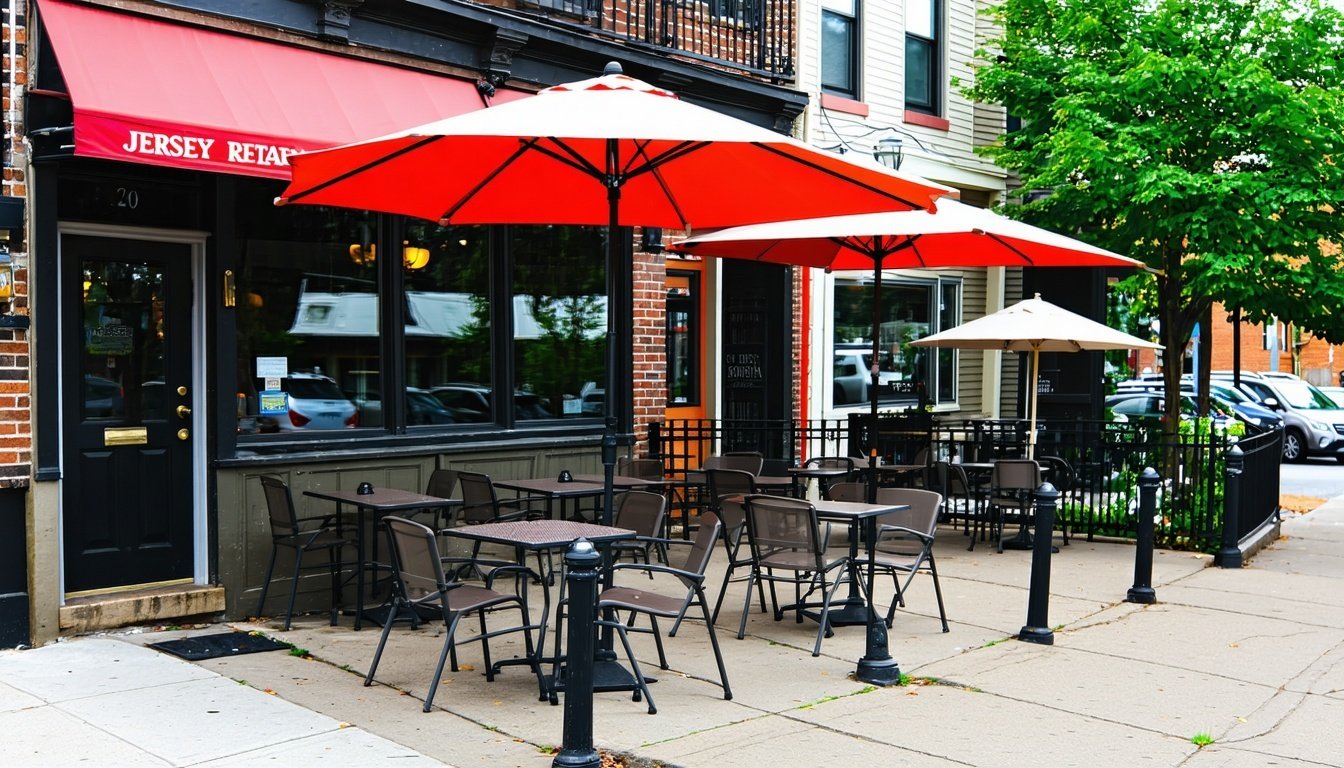Loans for Restaurants and Food Businesses in Jersey City
Jersey City’s food scene is booming—from food trucks and cafés to full-service restaurants and artisan producers. Whether you’re opening your first spot or expanding a menu, access to the right financing is key. This guide outlines loan options for Jersey City restaurants and food businesses, including SBA programs, equipment loans, nonprofit lenders, and local support.
Why Funding Matters for Food Businesses
Food businesses often need loans to:
-
Equip commercial kitchens and ventilation systems
-
Renovate dining rooms or build out new locations
-
Purchase equipment like ovens, refrigerators, or POS systems
-
Inventory and ingredient reserves
-
Hire or retain staff
-
Handle seasonal slowdowns or unexpected expenses
Smart funding empowers food entrepreneurs to open sooner, serve patrons better, and build stronger brands.
1. SBA Loan Programs
SBA 7(a) Loans
-
Loan amounts up to $5 million for equipment, working capital, renovations, or expansion
-
Competitive rates and extended repayment terms
SBA Microloans
-
Loans up to $50,000 for smaller projects like kitchen gear or soft openings
-
Ideal for newer businesses or modest upgrades
SBA 504 Loans
-
Designed for real estate or heavy kitchen equipment financing
-
Fixed, long-term rates in partnership with regional lenders
Local banks and credit unions in the Jersey City area often serve as SBA-approved lenders.
2. Equipment Financing & Leasing
For food businesses prioritizing cash flow:
-
Finance kitchen equipment—ovens, refrigeration, espresso machines—with loans or leases
-
Spread payments over 3–7 years
-
Installation tied to payment schedules preserves operating capital
Equipment financing is fast to arrange and practical for immediate operational needs.
3. Community Lenders & CDFIs
Local nonprofits offer financing tailored for Jersey City food entrepreneurs:
-
Microloans up to $25,000 for start-up or expansion
-
Growth loans up to $100,000 to support business scaling
-
Advisory services for marketing, training, and compliance
-
Flexible terms fitting minority-owned or mission-driven businesses
CDFIs are a strong option for food businesses needing both funding and capacity building.
4. City-Based Program Support
City or municipal food-business programs may include:
-
Low-interest loans for dining area upgrades or storefront revitalization
-
Grants for outdoor seating, façade work, or ADA compliance
-
Workforce development funds to support ongoing staff training
These programs are designed to enhance neighborhood vitality and strengthen local eateries.
5. Featured Snippet: 7-Step Loan Plan for Food Businesses
-
Define your goal—kitchen build-out, equipment purchase, seating expansion
-
Select funding: SBA 7(a)/504, microloan, CDFI loan, or equipment finance
-
Gather financials, vendor quotes, cost estimates, and business plan
-
Prequalify with two or more lenders for comparison
-
Submit applications
-
Close the loan and implement your project
-
Track ROI, sales growth, and repayment
6. Comparing Lending Options
| Loan Type | Best For | Considerations |
|---|---|---|
| SBA 7(a) | Major build-outs or multi-unit plans | Requires solid documentation, longer timeline |
| SBA Microloan | Small-scale upgrades or start-ups | Smaller loan amount limit |
| SBA 504 | Real estate or heavy kitchen build | Longer process; CDC partnership required |
| Equipment Financing | New ovens, refrigerators, fixtures | Collateral tied to equipment; quicker to close |
| CDFI Loan | Minority/mission-driven operators | Assistance included, but smaller loan size |
| City Programs | Outdoor seating, façade, training | Local criteria apply; timely application required |
7. Restaurant Success Snapshot
A trendy bistro on Jersey City’s waterfront:
-
Took a $200,000 SBA 7(a) loan for its kitchen and dining renovation
-
Added a $25,000 CDFI loan for outdoor seating and décor
-
Financed a new espresso machine via equipment financing
-
Result: Opened ahead of schedule, hired 3 new staff, and grew revenue by 30% in the first quarter
8. Tips to Improve Your Approval Odds
Increase funding success by:
-
Maintaining credit scores of 650 or above
-
Keeping two years of clean financial records
-
Building a clear, professional business plan and budget
-
Providing vendor quotes or contractor proposals
-
Seeking advice from local Small Business Development Centers or SCORE chapters
-
Prequalifying with multiple lenders to compare offers
Final Takeaway
Jersey City’s food entrepreneurs have robust funding pathways—from SBA loans and equipment leasing to nonprofit lending and city-backed programs. By combining resources and preparing thoroughly, culinary business owners can finance build-outs, expand capacity, and enhance customer experience with confidence.
✅ Your Next Steps
-
Define your funding requirement—kitchen, equipment, expansion, or staffing
-
Match it with the right option: SBA, equipment, CDFI, or city program
-
Gather key documents: financials, quotes, and business plan
-
Reach out to at least two lenders for quotes
-
Apply, receive funding, and bring your food vision to life











